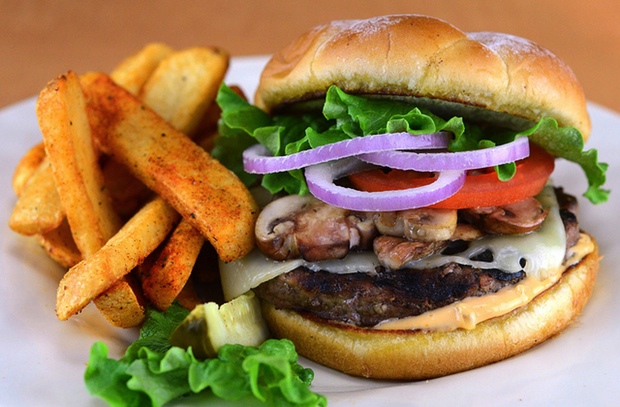A pint of Ben & Jerry’s, a plate of loaded nachos, an entire bag of Oreos: We often turn to comfort food during moments of desperation and extreme stress. But eating fast food and baked goods may actually be the cause of our depression.
A study published in the journal Public Health Nutrition found that consumers of fast food were 51 percent more likely to develop depression, compared with people who ate little to no fast food. For six months, researchers studied 8,964 participants who had never been diagnosed with depression or taken antidepressants.
After the study, they found that 493 participants were diagnosed with depression or started taking antidepressants. There was also a dose-response relationship observed: “The more fast food and desserts one consumed, the greater the risk of depression,” lead author Almudena Sánchez-Villegas said in a statement.
Even the “one cookie won’t hurt” mentality won’t help, researchers said. Eating small quantities of baked goods, including croissants and doughnuts, was associated with a “significantly higher chance” of having the blues.
Previous studies have found similar results, including one that found a 42 percent increase in the risk of depression among 12,059 people who ate fast food.
The researchers also found that those who consumed the most fast food tended to be single, less active, and smokers. They also worked more than 45 hours a week and ate less fruit, nuts, fish, vegetables, and olive oil.
Of course, those who are already depressed are also likely to turn to comfort food to seek satisfaction. But the results from this study are noteworthy because none of the participants had ever been diagnosed with depression or taken antidepressants.
Says Sánchez-Villegas: “Although more studies are necessary, the intake of this type of food should be controlled because of its implications on both health and mental well-being.”
For more information, click here.



















